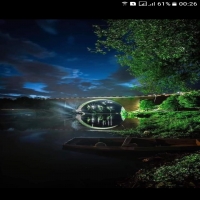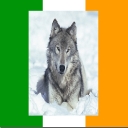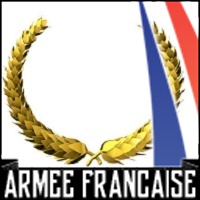![]() Diterbitkan di Albania - Interaksi Sosial dan Hiburan - 12 Jun 2016 03:42 - 31
Diterbitkan di Albania - Interaksi Sosial dan Hiburan - 12 Jun 2016 03:42 - 31
Korca is famous for its special buildings and premises of a high tourist value. There are developed some types of tourism such as: cultural, ecological, mountainous tourism etc. In Korca you can find also the Museum of Albanian Medieval Art and the Museum of National Education, museum houses of the famous painter Vangjush Mio and the distinguished patriot Themistokli Germenji. Korca offers to tourists a great cultural inheritance in architecture, town-planning, cultural monuments etc. The food that is served in restaurants, the characteristic drinks such as wine, “Korca” beer, the vodka of Korca etc are too special.Ecotourism is another field of a great interest for those who are impioned by the great beauties of Korca. The national park “Drenova Fir”, 10 km far from the city is situated on the crest of Morava mountain in the height of 1400 meters on the sea level, with a space of 1380 hectares. The park is rich in water sources like those of Shen Gjergji, Pllakes, Pllices etc., which amaze the visitors. Flora and fauna of the park is rich and varied. The woods like Macedonian fir (Abies borisi Regis), which is found bordered on southeastern Albania, black pine, panja and tisi (Taxus bacata), which is very rare dominate this park. Here it is found a great number of mammals. The park has incomparable values for the development of ecotourism, winter sports, alpinism, and excursion. The area of Prespa is declared a tourist zone and National Park, where the nature has gifted the wood and the lake which create the opportunities for the development of the rural tourism during the whole year. In the five villages round the shoreline of Prespa it can be developed the familiar tourism during the whole year because the four seasons offer different tourist distinctions. In Prespa it can be also developed the familiar tourism combined with the skiing, the development of horse racing, the sailing with small boats and ships.Another tourist spot is the pheasant forest in Maliq. It is a mixed forest semi natural that is declared a natural monument around the ’60. The forest has an area of 50 hectares, and it is found in the height of 813.5 meters on the sea level whereas the height of the trees reach 22.7 meters. The maximum age of the woods is 45 years old. The pheasant forest includes 8 kinds of woods such as: poplar, willow, lime tree, fir, pine tree etc.





1. Geographical PositionThe city of Korca is situated in the southeastern part of Albania and it is the biggest lated center of the basin that has the same name. The basin of Korca has an average height of 850 m on the sea level, with a width of 16 km from the west to the east and with a length of 35 km from the south to the north and it occupies an area of 300 km2. Korca has a favorable geographical position because it is situated between trading roads that join Albania with Macedonia (47 km) and Greece (35 km).
2. ClimateThe city of Korca is part of the Mediterranean uphill area, which has a climate of continental character, with cold winter and with a strong increase of the temperatures during the summer. The coldest month is January with the average temperature 0.4 degree Celsius, whereas the warmest month is August with 20.6 degree Celsius. During the winter the temperature is below zero.Generally Korca has dry weather: the annual average relative moisture is 68%. November is the month with the greatest rainfalls (about 104.9), then December, October, January and February. The summer is usually dry, during which it rains around 14% of the annual rainfalls. Among these annual rainfalls a part is in the form of snow which is yearly and the greatest number of the snowy days is during the period of December-January.Korca is situated in the southeastern part of Albania, in the central uphill region. It includes three towns: Korca, the center of the district, Bilishti, Maliqi and 27 communes. The city of Korca is one of the most important cities in Albania, situated in the southeastern part, at the foot of the hill of Morava, in the height of 869 meters on the sea level. The relief is mainly mountainous and hilly. The average height is 1145 meters. Korca is surrounded by a considerable number of mountains and hills, in the east the city is restricted with the mountain of Morava and in the west with the area of Gora, Voskopoja, and Vithkuq which are much more hilly areas. The Mountain of Qarri is found in the south whereas Mali I Thate in the north. The low area includes the Field of Korca, one of the biggest in Albania, and the Field of the upper Devoll. The area of Korca is rich in underwater sources, rivers, where the most important one is Devolli river with its two branches: Dunavec and the upper Osumi. In this area are also found the sources of the three Albanian rivers (Devoll, Shkumbin, and Osum). The lakes are Big Prespa and the Small Prespa.Korca, in the north, is restricted with the city of Pogradec which is found in 41 kilometers, in the south with the city of Erseka 45 km, in the east with Bilishti 27 km, and in the west with Skrapari. The city of Korca is 181 km far from the capital of our country, Tirana.
3. The best time for visiting KorcaThe four seasons have their own beauty, but the splendid season would be the winter. During the winter, Korca offers a wonderful view of the city under the mantle of snow. Korca would be interesting even during the autumn where apart from enjoying the beauties of the city, you would have the opportunity to taste the marvelous fruits of our area. For all those people who prefer the mountainous climate, during the hot summer, Korca and its districts will offer you the fresh, open air and the marvelous nature. Other interesting moments are during Easters, Christmas, or Carnivals where you will found an impressionistic, festive atmosphere.
4. The weather and clothingKorca is characterized by a climate partly mountainous Mediterranean and partly continental, with cold winter and hot, dry weather. The annual average temperature goes up to 10.6 degree Celsius. The coldest month is January whereas the hottest is August. The wettest month is November with the average rainfalls 104 millimeters whereas the annual average amount of rainfalls goes up to 720 millimeters. It is characterized by some local winds such as: Voskopojarja, the south western wind, Morava, Devollka etc.





1. Geographical PositionThe city of Korca is situated in the southeastern part of Albania and it is the biggest lated center of the basin that has the same name. The basin of Korca has an average height of 850 m on the sea level, with a width of 16 km from the west to the east and with a length of 35 km from the south to the north and it occupies an area of 300 km2. Korca has a favorable geographical position because it is situated between trading roads that join Albania with Macedonia (47 km) and Greece (35 km).
2. ClimateThe city of Korca is part of the Mediterranean uphill area, which has a climate of continental character, with cold winter and with a strong increase of the temperatures during the summer. The coldest month is January with the average temperature 0.4 degree Celsius, whereas the warmest month is August with 20.6 degree Celsius. During the winter the temperature is below zero.Generally Korca has dry weather: the annual average relative moisture is 68%. November is the month with the greatest rainfalls (about 104.9), then December, October, January and February. The summer is usually dry, during which it rains around 14% of the annual rainfalls. Among these annual rainfalls a part is in the form of snow which is yearly and the greatest number of the snowy days is during the period of December-January.Korca is situated in the southeastern part of Albania, in the central uphill region. It includes three towns: Korca, the center of the district, Bilishti, Maliqi and 27 communes. The city of Korca is one of the most important cities in Albania, situated in the southeastern part, at the foot of the hill of Morava, in the height of 869 meters on the sea level. The relief is mainly mountainous and hilly. The average height is 1145 meters. Korca is surrounded by a considerable number of mountains and hills, in the east the city is restricted with the mountain of Morava and in the west with the area of Gora, Voskopoja, and Vithkuq which are much more hilly areas. The Mountain of Qarri is found in the south whereas Mali I Thate in the north. The low area includes the Field of Korca, one of the biggest in Albania, and the Field of the upper Devoll. The area of Korca is rich in underwater sources, rivers, where the most important one is Devolli river with its two branches: Dunavec and the upper Osumi. In this area are also found the sources of the three Albanian rivers (Devoll, Shkumbin, and Osum). The lakes are Big Prespa and the Small Prespa.Korca, in the north, is restricted with the city of Pogradec which is found in 41 kilometers, in the south with the city of Erseka 45 km, in the east with Bilishti 27 km, and in the west with Skrapari. The city of Korca is 181 km far from the capital of our country, Tirana.
3. The best time for visiting KorcaThe four seasons have their own beauty, but the splendid season would be the winter. During the winter, Korca offers a wonderful view of the city under the mantle of snow. Korca would be interesting even during the autumn where apart from enjoying the beauties of the city, you would have the opportunity to taste the marvelous fruits of our area. For all those people who prefer the mountainous climate, during the hot summer, Korca and its districts will offer you the fresh, open air and the marvelous nature. Other interesting moments are during Easters, Christmas, or Carnivals where you will found an impressionistic, festive atmosphere.
4. The weather and clothingKorca is characterized by a climate partly mountainous Mediterranean and partly continental, with cold winter and hot, dry weather. The annual average temperature goes up to 10.6 degree Celsius. The coldest month is January whereas the hottest is August. The wettest month is November with the average rainfalls 104 millimeters whereas the annual average amount of rainfalls goes up to 720 millimeters. It is characterized by some local winds such as: Voskopojarja, the south western wind, Morava, Devollka etc.
Menguasakan
Komentar (31)
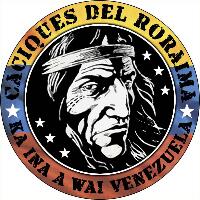
c+v+s

c+v+s

v9 sub6
please sub https://www.erevollution.com/en/newspaper/2515
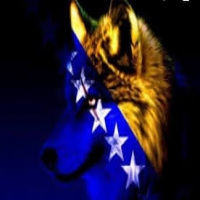
hcgf

Hail Canada

sub back

sv

c+v+c . sub back

svc sub back

c+v+s

V28+S22! o/

fg

votova dhe u abonova. ahhh birra Korce  )
)

o7

vs
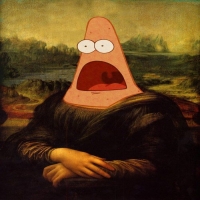
cool

o7



